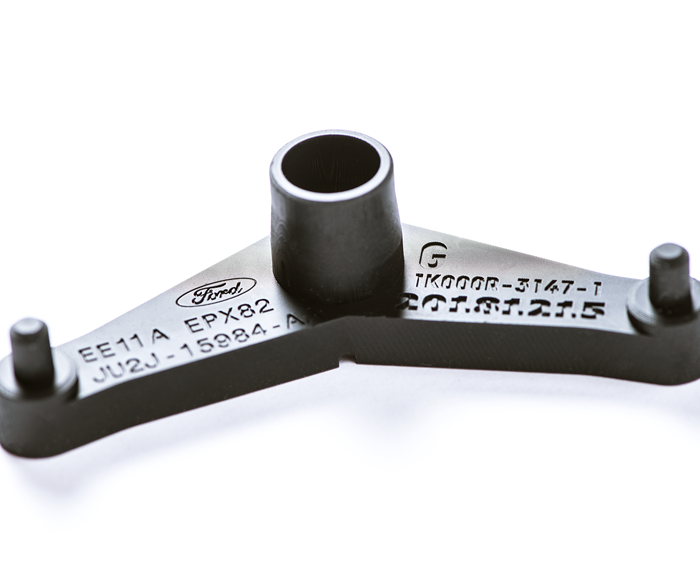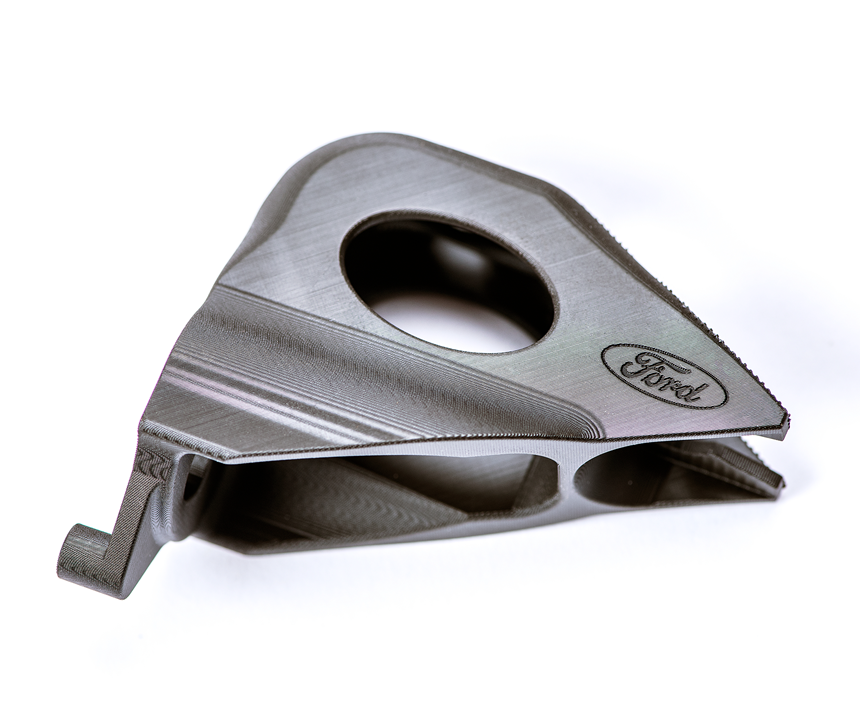Carbon, Ford Collaborate on 3D-Printed End-Use Parts
At the 2019 North American International Auto Show, Carbon unveiled the first digitally manufactured polymer parts in production for Ford Motor Co.
3D printing company Carbon (Silicon Valley) showed the first digitally manufactured polymer parts in production for Ford Motor Co. at the Additive Manufacturing for Automotive Workshop at the 2019 North American International Auto Show (NAIAS) in Detroit.
The parts include Ford Focus HVAC (heating, ventilation and cooling) lever arm service parts, Ford F-150 Raptor auxiliary plugs for a niche market, and Ford Mustang GT500 Electric parking brake brackets.
Carbon and Ford, which recently announced the opening of its Advanced Manufacturing Center in Redford, Mich., have expanded their collaboration to design and produce several new digitally manufactured, end-use parts using Carbon’s printers, proprietary Digital Light Synthesis technology and EPX (epoxy) 82 material. Carbon’s durable EPX 82 material proved ideal for these parts, passing Ford’s rigorous performance standards and withstanding critical requirements such as interior weathering; short- and long-term heat exposures; UV stability; fluid and chemical resistance; flammability (ISO 3795); and fogging (SAEJ1756) for the selected applications.
“We are thrilled to be collaborating with Ford Motor Company and are excited about the many opportunities to leverage the power of digital manufacturing to deliver durable, end-use parts with similar—or better—properties as injection molded parts,” says Joseph DeSimone, CEO and Co-founder of Carbon. “The automotive industry shows significant promise for using digital fabrication at scale, and our work with Ford is a perfect example of the kind of innovation you can achieve when you design on the means of production.”
The company says its moving beyond 3D printing to full-scale digital manufacturing by helping customers create break-through products across industry sectors. For more about Carbon, check out my site visit to the company here.
Related Content
-
Atop the Plastics Pyramid
Allegheny Performance Plastics specializes in molding parts from high-temperature resins for demanding applications as part of its mission to take on jobs ‘no one else does.’
-
Neste, Borealis and Covestro Plan to Make Polycarbonate From Recycled Tires
Companies announced agreement that will use advanced recycling to convert old tires into new PC-suitable for automotive applications.
-
Automotive Awards Highlight Emerging Technologies
Annual SPE Automotive event gives nods to several ‘firsts’ as well as sustainability.

















